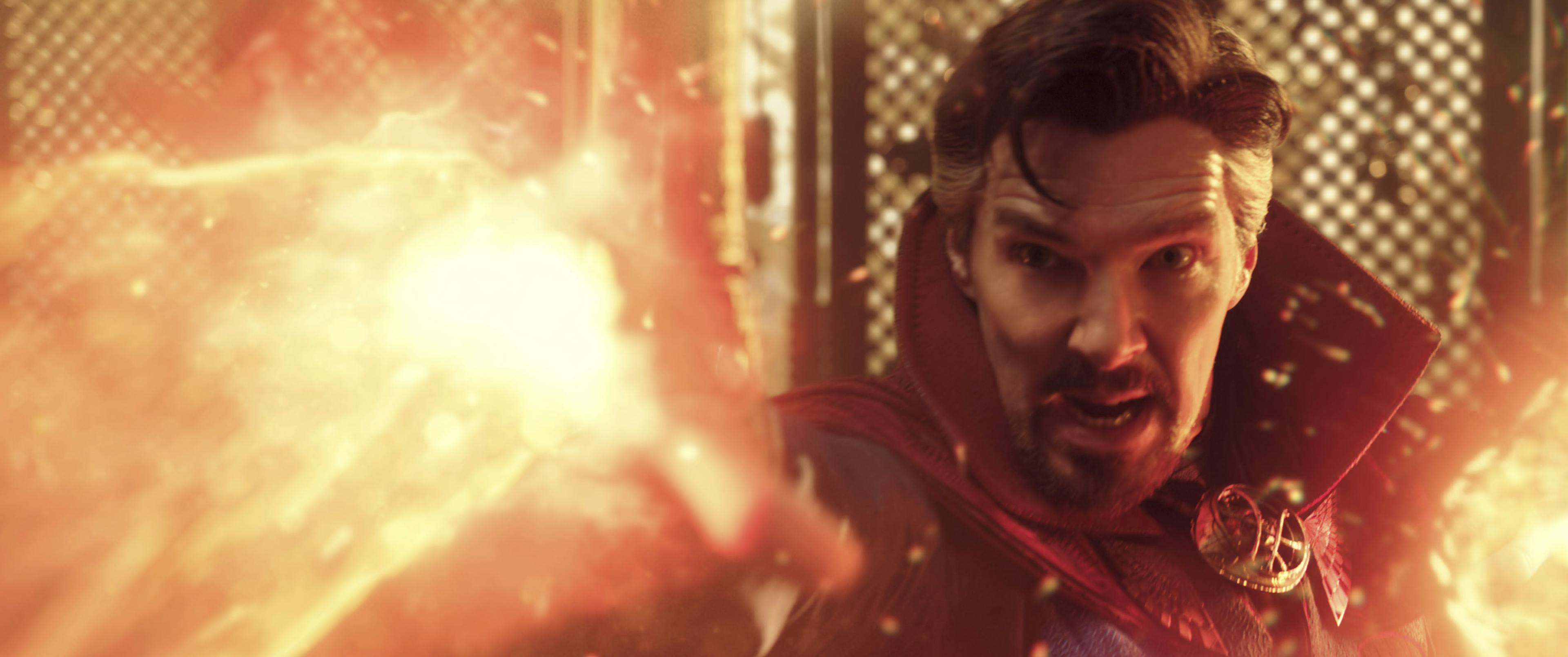There’s a film-reviewers’ convention that revealing the events of a movie’s first act doesn’t generally constitute dropping a spoiler. This does not apply to Doctor Strange In The Multiverse Of Madness. So reliant is the second mainline Doctor Strange outing (and 28th entry in the Marvel Cinematic Universe overall) on narrative-flipping twists, mind-bending reveals and cameo appearances which cross over into blatant fan-service, that to give away any meaningful detail really is to do viewers a disservice. For maximum impact, go in cold.
Still here? We’ll tread carefully.
Following on from the events of last year’s box office-busting Spider-Man: No Way Home, Dr. Stephen Strange is back in New York, managing low-grade magical mischiefs, bantering away with best friend Wong, who amusingly usurped his title as Sorcerer Supreme during Thanos’ five-year ‘Blip’, and pining over old flame Christine Palmer. It’s during Christine’s wedding, where the good Doctor is relegated from universe-saving superhero to lonely bachelor, that, wouldn’t you know it, spunky teenager America Chavez crashes in from an alternate universe pursued by the sort of massive cyclops/octopus hybrid of which H.P. Lovecraft would have been proud.
America, it transpires, has the involuntary ability to traverse the infinite multiverse. A dark force is on her tail to take that potentially-cataclysmic power for itself. Everything goes thoroughly batshit from there...
Crucially, the multiversal mayhem is marshalled by veteran director Sam Raimi. Although he’s got serious history in the superhero genre, having set the bar with the 2000s’ Tobey Maguire Spider-Man trilogy, big Sam delves back further into his repertoire here, channelling much of the murky eccentricity of 1990’s Darkman and his seminal Evil Dead trilogy. Early reports suggested that the second Doctor Strange would be the MCU’s first bona fide horror movie. Although that isn’t quite accurate, we do get more witches and zombies, dark souls and hulking monsters than a Hellgate opening at Halloween, with major fatalities racking up at a startling rate. An excellent Danny Elfman score ups the atmosphere of gothic unease.
Even more significant are the film’s forays into psychological horror. Although the MCU has somewhat ham-handedly attempted to play on certain heroes’ internal struggles before, the multiversal possibility of being confronted by alter-egos who stumbled (or threw themselves) off the righteous path help rack up the tension and tragedy. Benedict Cumberbatch (as Strange) and Elizabeth Olsen (Wanda Maximoff/Scarlet Witch) are visibly relishing the opportunity to stretch their acting wings.
